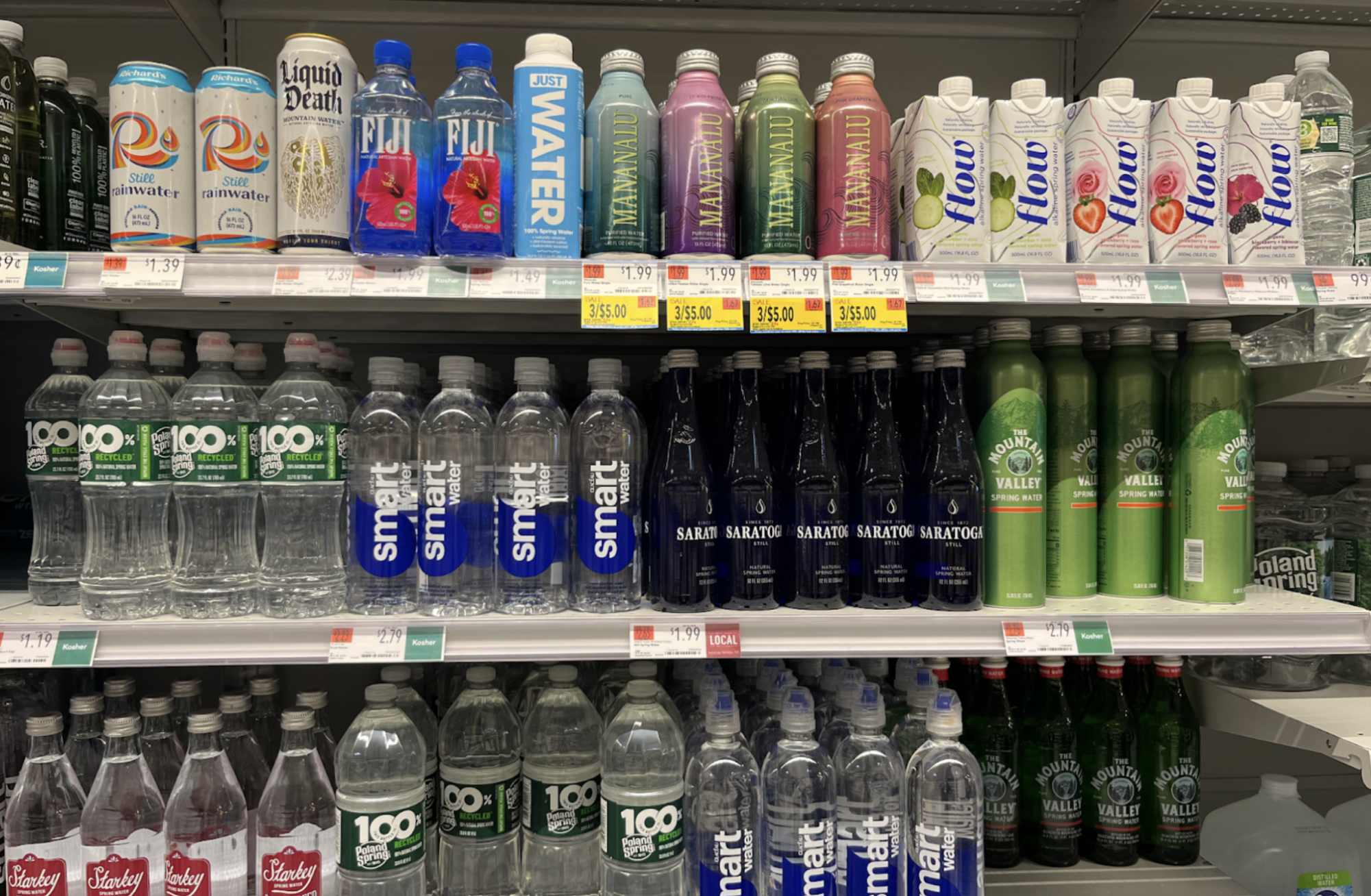
Water — a staple item in everyone’s diets that allows big business to jump on the chance to generate buyer loyalty based on the societal implications of certain brands. Societal implications of what it means to carry a certain bottle, what it means to purchase bottled water in the first place.
These corporations feed on our innate status-oriented mentality. While it’s strange that we as a society feel it necessary to market vital resources to our survival, we also can’t help our human nature in that we sure do love aesthetics.
I found myself at the bottled water section at my local Whole Foods, when I began twitching with the primitive rush of my survival instincts. The fancy bottles caused the ancient gears in my head to turn as I contemplated which one would be the most beneficial to my sustainment. Like how a monkey can pick out the best fruits from a pile.
Even if it is just water, water itself is an incredibly finicky human need. Easily contaminated with difficulty of repurification, water’s cleanliness is essential to our survival. But when looking at these packages, none of them felt right. Microplastics in the plastic bottles, possible traces of lead in the metal bottles, and the thought of drinking something called “Liquid Death” did not sit well with me. It’s hard to make healthy choices when there are very few healthy options.
In these moments, humans know to stick to our tried and true, whatever that brand may be for you. While it feels weird that it has become the norm to purchase something we literally can’t live without after it has been harvested, processed, packaged, and marketed, one can take comfort in knowing that scanning the shelves is just a way for us to connect with our inner caveman.
Even the choice of drinking bottled water is a deliberate one, as according to a study done by the National Library of Medicine, most people who drink bottled water do so due to concerns with their central water supply. The study states when discussing why people are willing to consume bottled water over water provided through a central supply, “Other contributing factors include demographics, perceived quality of the tap water source, and trust in water companies.”
It’s that trust that brings in customers. Customers who bring in big bucks, which big businesses like The Coca-Cola Company, parent company to smartwater and Dasani, love.
The same study, done in 2014, says further, “While the [bottled water] industry enjoyed a period of strong growth, this slowed a little, and is said to be attributable to factors in the USA, including the slowing economy and increasing awareness of environmental impacts of bottled water.”
Thus demonstrating that what our survival instincts brand as “good” ebbs and flows with the information we have at the time. Like if two monkeys are eating mangoes and then all the sudden one of them drops dead from the mango, the other is going to be pretty weary of picking up another mango.
If one day bottled water is a way for us to guarantee safe drinking water, then the next we find that it’s actually causing major pollution in our area, some will thus be less inclined to purchase a mega pack of Poland Spring and will maybe opt for a recyclable pack of Boxed Water is Better instead.
A concept that solidifies the idea that we are primal organisms whether we want to be or not. We rely on our instinctual nature to get us to tomorrow, thus making each trip to the grocery store a way to exercise our most primitive selves.








